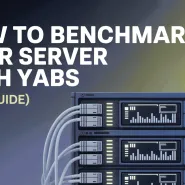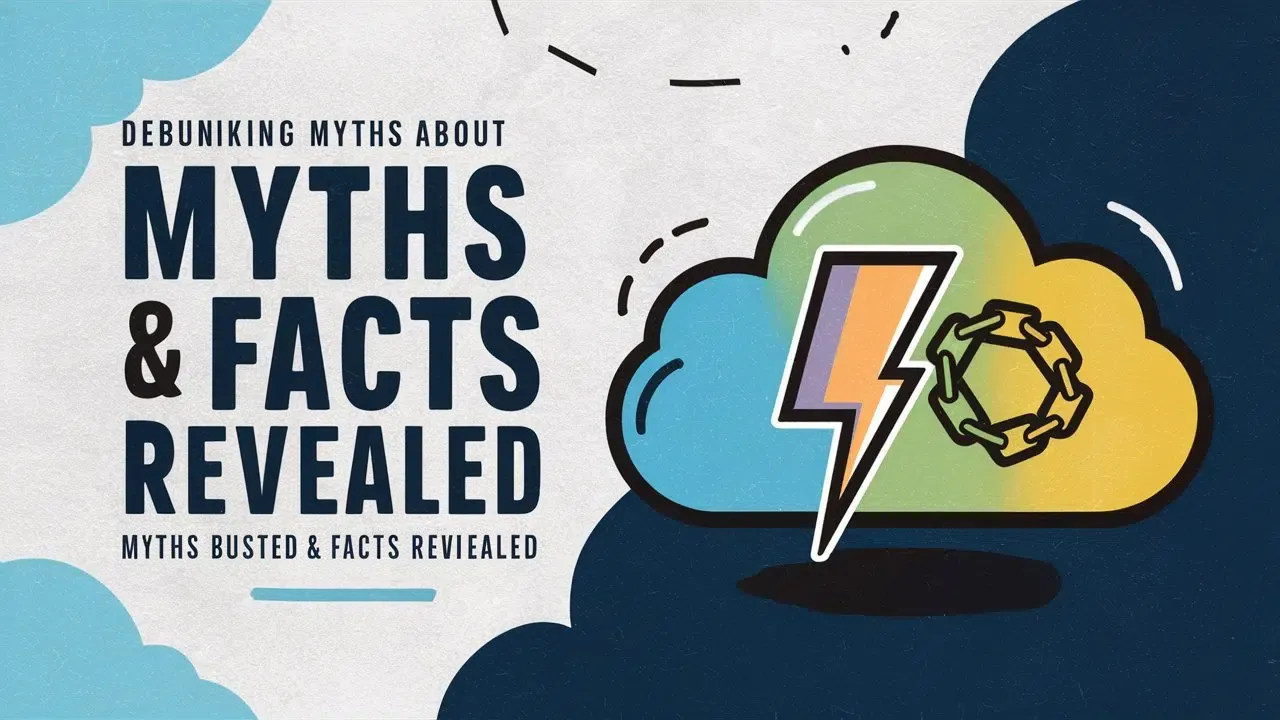In today’s digital world, web hosting is one of the most important things for building a strong online presence. But with so much information floating around, it’s easy to believe things that just aren’t true. That’s why we’re here with “Debunking Common Myths About Web Hosting: Myths Busted & Facts Revealed” by Owrbit. This guide will help you separate the facts from the fiction so you can make the right choices.
Many people think all hosting services are the same or that only tech experts can handle websites. These Myths About Web Hosting often lead to confusion and poor decisions. In this article, we’ll uncover the truth behind these myths and share facts to help you choose the best hosting service for your needs.
Whether you’re a business owner, a web developer, or just starting a personal blog, understanding the truth about hosting can make a big difference in your online success. So, let’s dive in and start debunking common myths about web hosting to set you on the right path!

Introduction to Web Hosting :
Web hosting is like renting a home for your website on the internet. When you create a website, it consists of various files, such as text, images, videos, and data. These files need a place to live so that people can access them online. That’s where web hosting comes in.
Imagine your website as a book. Just like a book needs a library to be stored and read by others, your website needs a web host to store its files and make them available on the internet. Web hosting companies provide the servers, which are powerful computers designed to keep your website up and running.
Here’s how it works: When someone types your website’s address (like www.yourwebsite.com) into their browser, that browser sends a request to the web hosting server. The server then delivers your website’s files to the user’s browser, allowing them to see and interact with your site.

Debunking Myths About Web Hosting : Top 10 Myths
Let’s clear up some common misunderstandings about web hosting to help you make smarter decisions. These Myths About Web Hosting might surprise you, but knowing the truth can save you time, money, and stress.

Myth 1 :- All Web Hosting Services Are the Same :
One of the biggest Myths about web hosting is that every hosting service offers the same features, performance, and reliability. This couldn’t be further from the truth.
Fact:
Web hosting services vary widely in terms of quality, features, and support. For example, some providers specialize in high-speed performance with SSD storage, while others focus on budget-friendly plans with basic features. Factors like uptime guarantees, customer support availability, security options, and scalability can differ significantly between hosting companies.
Why It Matters : Choosing the right hosting provider, like Owrbit, ensures your website gets the speed, uptime, and support it needs to succeed. Avoid falling for this myth—research your options to find a service tailored to your specific requirements.
Myth 2 :- Web Hosting Is Expensive :
A common belief is that web hosting costs a lot and is only for big businesses with large budgets.
Fact:
Web hosting doesn’t have to break the bank. There are plenty of affordable options available, with plans starting as low as $1.49/month, like those offered by Owrbit. Shared hosting, for example, is a budget-friendly choice for personal websites and small businesses. Costs typically increase for advanced features like dedicated servers or managed hosting, but there’s always a plan to fit your needs.
Why It Matters: This Myths About Web Hosting stops many people from starting their online journey. The truth is, hosting is available at various price points, making it accessible for everyone—from bloggers to large enterprises.
By debunking common myths about web hosting, you can find affordable solutions without compromising on quality. Don’t let cost misconceptions hold you back!
Myth 3 :- Only Tech-Savvy People Can Manage Hosting :
Many believe you need to be a tech expert to set up and manage a hosting account.
Fact:
Modern web hosting is designed to be user-friendly, even for beginners. Most hosting providers, like Owrbit, offer intuitive dashboards, one-click installers for platforms like WordPress, and 24/7 customer support. These features make it easy for anyone to manage their hosting without needing technical skills.
Why It Matters: This Myths about web hosting discourages people from creating their own websites. In reality, hosting services cater to users of all skill levels, helping them get online quickly and easily.
By debunking common myths about web hosting, you can confidently choose a hosting provider that simplifies the process, even if you’re new to website management.
Myth 4 :- Free Hosting Is Enough for Any Website :
Reality: While free hosting might sound appealing, it’s rarely enough for serious websites. Free hosting often comes with limited storage, bandwidth, and poor performance, which can hurt your website’s functionality. Most free hosting providers also place ads on your site, making it look unprofessional.
For personal blogs or testing small projects, free hosting can work temporarily. But for businesses or websites expecting traffic growth, a reliable paid hosting plan is essential. Affordable options, like Owrbit’s plans starting at just $1.49/month, offer better performance, security, and features tailored to your needs.
Don’t fall for this Myths About Web Hosting—invest in hosting that helps your site thrive!
Myth 5 :- Unlimited Hosting Means Truly Unlimited Resources :
Reality: The term “unlimited hosting” is often misleading. While hosting providers advertise no limits on storage or bandwidth, there are always hidden restrictions. These plans typically operate under a “fair usage policy,” meaning your resources are shared with others on the same server. If your website consumes too much CPU, RAM, or bandwidth, your host may throttle performance or ask you to upgrade.
For most small to medium-sized websites, “unlimited” plans can be sufficient. But high-traffic or resource-heavy sites might need VPS or dedicated hosting. Understanding this Myths About Web Hosting can save you from unexpected limitations down the road. Always read the fine print!
Myth 6 :- High Traffic Websites Can’t Use Shared Hosting :
Reality: While shared hosting has its limitations, it can handle moderate traffic if optimized correctly. Many believe this Myths About Web Hosting, but the truth is that shared hosting can support thousands of visitors if your website uses efficient caching, optimized images, and lightweight themes or plugins.
However, if your traffic grows significantly or spikes often, shared hosting may struggle with performance issues. For high-traffic websites, upgrading to VPS or cloud hosting is a better option. Knowing when to scale your hosting ensures your site remains fast and reliable without overspending early on.
Myth 7 :- Uptime Guarantees Mean Your Site Will Never Go Down :
Reality: Uptime guarantees like “99.9% uptime” don’t mean your site will never experience downtime. Instead, they promise minimal disruptions over a specific period, usually a year. For instance, 99.9% uptime still allows for around 8 hours and 45 minutes of downtime annually.
While reputable providers work hard to keep downtime low, factors like maintenance, server issues, or unexpected failures can still occur. Always check the hosting provider’s Service Level Agreement (SLA) to understand what happens if they don’t meet their uptime guarantee. Some offer compensation, such as credits or refunds, for excessive downtime.
Choosing a reliable host like Owrbit ensures you get maximum uptime with proper support to minimize any potential impact.
Myth 8 :- Hosting Security Is the Provider’s Problem :
Reality: While hosting providers play a significant role in maintaining security, the responsibility doesn’t end with them. Hosting companies secure their servers with firewalls, DDoS protection, and malware scans, but keeping your website safe also depends on you.
Here’s how you can boost your site’s security:
- Use Strong Passwords: Create complex passwords for your hosting, CMS, and databases.
- Keep Software Updated: Regularly update your CMS, plugins, and themes to avoid vulnerabilities.
- Install an SSL Certificate: Encrypt data between your site and users for added security.
- Backup Regularly: Maintain backups to recover quickly from attacks or data loss.
A secure hosting provider like Owrbit gives you the tools and support you need, but securing your website requires teamwork between you and your host.
Myth 9 :- Website Speed Depends Only on Hosting :
Reality: While hosting is an important factor in website speed, it’s not the only thing that matters. Several other elements contribute to how fast your website loads.
Here are a few additional factors that affect speed:
- Website Optimization: Compressing images, minifying code (HTML, CSS, JavaScript), and using efficient design can dramatically improve speed.
- Caching: Enabling caching stores static content locally, reducing load times for repeat visitors.
- Content Delivery Network (CDN): A CDN distributes your content across global servers, speeding up access for users from different regions.
- External Scripts: Heavy third-party scripts like ads or embedded content can slow your site down, so keep them in check.
While a fast and reliable hosting service like Owrbit is essential, combining it with good optimization practices will deliver the best results for your website’s speed.
Myth 10 :- Switching Hosting Providers Is Complicated :
Myth: Moving your website to a new hosting provider is a long, complex process that’s filled with risks.
Fact: Switching hosting providers doesn’t have to be difficult. Many hosting companies, like Owrbit, offer free website migration services to ensure a smooth transition. Most providers also provide detailed step-by-step guides to help you move your site with minimal downtime.
Here’s what to expect when switching hosting providers:
- Backup Your Site: Before making the move, always back up your website to avoid losing any data.
- Choose a New Provider: Select a hosting service that meets your needs (speed, security, scalability).
- Migration Process: The new hosting provider often handles the entire migration process, transferring your files, databases, and email.
- Test Everything: After the transfer, check your website for any issues like broken links or missing images.
- Update DNS Settings: Once everything is ready, update your domain’s DNS settings to point to the new server.
With the right support, switching hosting providers can be easy and stress-free. Don’t let the Myths about web hosting changes hold you back from upgrading to a better, more reliable service.
Conclusion: Myths about web hosting
When it comes to debunking common myths about web hosting, it’s clear that many of the beliefs surrounding hosting are simply not true. Understanding the facts can help you make better decisions, whether you’re starting a blog, growing your business, or managing a large website.
Myths about web hosting, like the idea that all hosting services are the same or that web hosting is too expensive, can lead to confusion and poor choices. The reality is that there are affordable, user-friendly, and highly reliable hosting options out there—like Owrbit—that can meet your specific needs.
By recognizing these Myths about web hosting and focusing on the facts, you’ll avoid making costly mistakes. Hosting is not just about finding the cheapest option but about choosing the right provider that offers the speed, support, security, and scalability your website requires.
In the end, debunking common myths about web hosting can empower you to confidently select the best hosting service, one that will help you build a successful online presence. So, don’t let myths hold you back—get the facts, and make the right decision for your website today!
Checkout How to Build a Website from Scratch in 2025: A Beginner’s Guide
Discover more from Owrbit
Subscribe to get the latest posts sent to your email.










